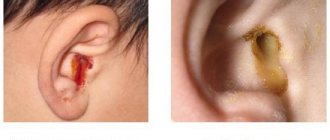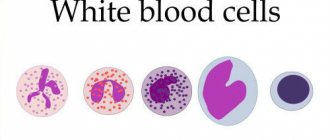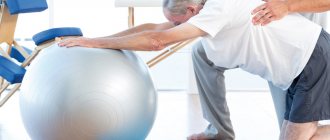The short-term craving for sleep during the day is well known to most of us. As a rule, this is a consequence of overwork, caused by increased physical and mental stress or chronic lack of sleep. Yawning and drowsiness often occur in a stuffy room with a lack of oxygen. Once you go out into the fresh air, your vigor returns. Thus, by observing the nature and duration of the period of drowsiness, we can conclude how serious the pathology is.
What to do if you constantly feel sleepy
If you constantly want to sleep, but at the same time you feel tired, your performance and concentration decrease, you should make an appointment with a doctor. Based on the results of the examination (if such a need arises), the therapist will prescribe a course of treatment or give a referral to a specialist. Most often, drowsiness is a companion to any chronic disease, so the patient will have to undergo examination so that the cause of the syndrome is correctly identified.
If a headache appears after sleep or the pain syndrome is present in a muted form during rest, while weakness and fatigue progresses, a visit to the doctor cannot be postponed. The symptoms described above are characteristic of diseases of the central nervous system, circulatory organs, heart and blood vessels, and many other pathologies.
Let us consider in more detail the features of the manifestation of drowsiness in various diseases.
Most common reasons
There are several reasons why you want to sleep in the fall :
- lack of sunlight – it affects the production of hormones;
- the body is preparing for winter - for some people, seasonal weight fluctuations are well expressed, for others they are almost not felt;
- uncomfortable temperature - over the summer we have become accustomed to the heat, and when the temperature outside the window drops, and the heating has not yet been turned on in the apartment, it reacts to a change in the usual climate, reduces activity in order to conserve heat and energy;
- weakened immunity - due to decreased doses of ultraviolet radiation, the production of vitamin D decreases; in the second half of autumn, the proportion of fresh local vegetables and fruits in the diet decreases;
- freezing – the weather in autumn is unstable, and when leaving the house in the morning it is difficult to choose the right clothes so as not to freeze;
- fatigue – after the end of the holiday season, many companies launch new projects, introduce various innovations, and an increase in work volumes and new demands cause stress, the desire to sleep is a natural defensive reaction;
- exacerbation of chronic diseases - many chronic diseases worsen in autumn and spring, which leads to a deterioration in well-being.
Vegetovascular (neurocirculatory) dystonia
Vegetative-vascular dystonia is a dysfunction of the vascular system associated with a disorder of the endocrine system (more precisely, with a change in the mechanism of neuroregulation). The disease is so common that many people do not perceive it as a serious illness. The high-risk group includes young and middle-aged women. In addition to drowsiness and headache, signs of VSD are:
- cardiopalmus,
- rapid onset of fatigue from minor physical exertion;
- feeling of lack of air (a person often sighs);
- periodic dizziness;
- pain in the heart area;
- cold extremities (especially hands and feet);
- tendency to sweat.
A large role in the development of the disease is played by hereditary predisposition, bad habits (smoking in the first place), a sedentary lifestyle, inability to withstand stressful situations, and emotional instability. VSD can develop against the background of cerebrovascular accident.
In most cases, symptoms of VSD disappear with lifestyle changes. Proper nutrition, physical exercise, adherence to a work-rest regime, and regular hardening lead to a significant improvement in well-being: drowsiness and headaches disappear, mood improves and performance increases.
In advanced cases, medications are prescribed to improve the functioning of the autonomic nervous system. The problem cannot be solved on its own; medical assistance is required.
How to cope with fatigue and apathy on your own
You can combat seasonal drowsiness by taking foods containing B vitamins and ascorbic acid. In addition to citrus fruits, the diet includes general strengthening agents.
An infusion of dried calamus roots (10 grams of raw material per glass of boiling water) is drunk a quarter glass 30 minutes before meals. It will help cope with physical fatigue and improve condition after serious illnesses and operations. It is useful to take in old age.
For lethargy resulting from depression, hypotension, and functional disorders of the nervous system, a tincture of Aralia tall or cordate roots is recommended. It is prepared with alcohol in a ratio of 1:5 and taken 30–40 drops 2–3 times a day. The juice of barberry berries, fresh grapes, pomegranate fruits, cherries, and infusion of cinnamon rose hips have a general strengthening effect on the human body.
Severe fatigue goes away after drinking Schisandra chinensis tincture, 30–40 drops per day, or eleutherococcus. Vital tone is increased by the infusion of mistletoe herb. Take a teaspoon of raw material per glass of boiled water at room temperature. After 8 hours of infusion, drink a third of a glass up to 3 times a day.
Stimulation of energy and endurance is needed for those who have constant weakness and drowsiness. Magnesium in purslane, beans, spinach, lettuce, poppy seeds, and coriander can restore vital potential. Cortisol contained in licorice root helps fight stress. You should take 2-3 grams of root in the morning and evening, reducing the amount of herbal remedy after 6-8 weeks.
Changing your lifestyle will help you get rid of chronic fatigue
If you cannot get rid of increased fatigue and apathy with folk remedies, then you need to consult a doctor. Conditions that make it difficult to work, disrupt sleep, or disrupt relationships with others require consultation. It is dangerous when, after a period of good health, severe apathy suddenly sets in.
In this case, you need to undergo a comprehensive examination by visiting an endocrinologist, cardiologist, neurologist, or psychotherapist.
Increased self-esteem
You can get rid of fatigue and drowsiness using psychological methods:
- the ability to forgive oneself for mistakes;
- spending free time with people who inspire and support self-confidence;
- planning to introduce new things into your life;
- reading good books, discussing them with friends.
Only positive emotions and good feelings protect against fatigue and prolong life. We must constantly please ourselves with good deeds. Relieves tension in the evening by taking a warm bath or massage. It is important to be able to keep your back straight. Then apathy and weakness will have no place in life.
Frequent drowsiness and fatigue, apathy, and lack of vital energy are cured when the cause of the condition is identified. Signs caused by external causes can be easily eliminated by changing your daily routine and diet. Internal causes must be dealt with together with specialists.
CNS lesions
Any brain damage caused by infection, trauma, postoperative complications or systemic diseases can lead to the development of drowsiness. Associated symptoms:
- headache;
- fatigue;
- lethargy;
- violation of attention and active orientation;
- change in facial expressions.
Drowsiness develops as you fall into a coma. Patients in a state of partial unconsciousness complain of headache, nausea, dizziness, aggravated by bright light and loud sounds.
Drowsiness also occurs when poisoned by poisons that affect the central nervous system. As a result of exposure to endogenous or exogenous toxins, depression of the central nervous system occurs. The person complains of weakness, headache, lethargy, and blurred vision. In some cases, drowsiness is replaced by bouts of excitement, after which severe fatigue sets in. The listed symptoms are alarming and indicate the need for emergency medical care.
You suffer from depression
Depression can be extremely difficult to recognize. Sometimes people experiencing this mental disorder may behave completely normally. You can detect the problem only by looking closely and noticing minor changes in behavior.
Fatigue, painful reluctance to get out of bed, drowsiness are clear symptoms of latent depression.
What to do
If you feel that the world has become gray and you don’t want anything (except to sleep), find the strength to visit a psychotherapist. Or at least to a therapist: a primary care doctor will also be able to recognize the problem, if there is one, and, if necessary, send you to a specialized specialist who will help overcome depression.
Save










